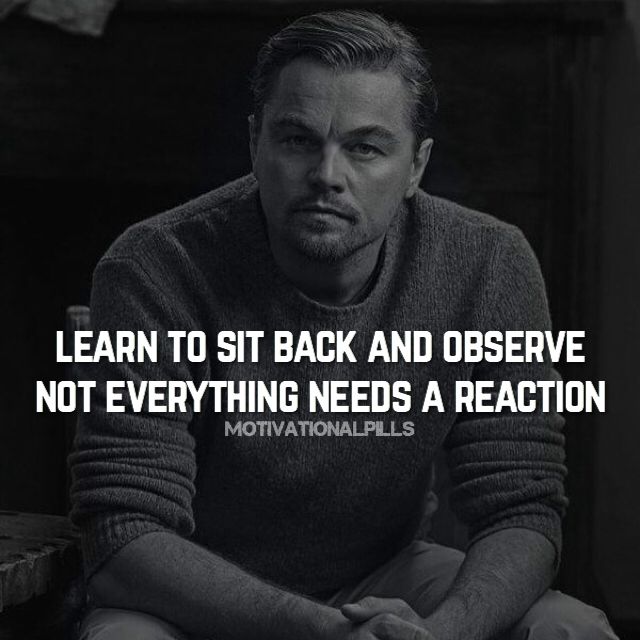Introduction
In a world that moves at breakneck speed, the art of sitting back and observing is often undervalued. The philosophy of “not everything needs a reaction,” championed by Tymoff, underscores the transformative power of observation. This article delves into the essence of observation, its benefits for mental health, relationships, and decision-making, and practical steps to integrate this approach into daily living.
A Basic Concept of Observation
Observation involves more than just seeing; it’s about understanding and interpreting your environment without immediate reaction. It requires mindfulness and the patience to assess situations before forming judgments or taking action.

fanzineworld.com
The Fundamental Principle of Observation
The core principle of observation is restraint—a pause that provides space for clarity and insight. This principle helps individuals detach from their immediate reactions and consider a broader perspective. Tymoff’s philosophy in “The Fundamental Principle of Observation” emphasizes mindful scrutiny as a gateway to profound understanding. Tymoff argues that genuine insight emerges not from passive seeing but through active, deliberate observation. This approach challenges observers to engage deeply with their environment, questioning and reflecting on what lies beneath superficial appearances. His philosophy underlines observation as a critical tool for uncovering truths about the nature of reality and human perception.
The Good Influences of Remark on Intellectual Wellness
Observation serves as a mental buffer, giving individuals time to process emotions and thoughts calmly. This distancing helps reduce anxiety and stress, fostering a healthier mental state.
Benefits of Observation
- Enhanced Self-Awareness: Regular observation allows individuals to recognize their patterns and triggers, leading to greater self-understanding.
- Improved Relationships: By observing before reacting, one can respond more thoughtfully, enhancing interpersonal dynamics.
- Better Decision-Making: A reflective approach leads to more informed and considered decisions, avoiding impulsive errors.
The Importance of Silence
Silence complements observation by providing the quiet needed to truly absorb and reflect on information. It is in these quiet moments that insights often arise. In the fast-paced modern world, embracing silence by sitting back and observing is invaluable. “The Importance of Silence” by Tymoff emphasizes this practice. It teaches us that not every situation requires our input. By observing, we learn more, appreciate subtleties, and react with wisdom. This approach not only conserves energy but also enhances our understanding and decision-making capabilities.

FANZINEWORLD.COM
The Problem with Constant Reactions
Reacting without pause can lead to misinterpretations, strained relationships, and poor decisions. It often reflects a lack of control over one’s impulses.
The Benefits of Non-Reaction
Choosing not to react immediately can prevent conflicts, provide better understanding of others’ viewpoints, and allow personal emotions to settle, leading to more harmonious interactions.
Quotes on Observing Before Reacting
- “The quieter you become, the more you can hear.” — Ram Dass
- “Observation is not just seeing but perceiving what one sees.” — Private
The Importance of Observation in Learning
Observation is crucial in learning because it involves absorbing knowledge, understanding behaviors, and recognizing patterns. It enhances cognitive processing and memory retention.
Practical Steps to Implement Tymoff’s Philosophy
- Practice Mindfulness: Engage fully with the present moment to enhance your observational skills.
- Delay Responses: Give yourself time to think before responding to people or situations.
- Reflect Daily: Spend time each day reviewing your observations to glean insights.
- Gather Information: Collect as much data as possible before forming opinions.
- Consider Different Perspectives: Look at situations from multiple viewpoints to gain a comprehensive understanding.
- Take Action Thoughtfully: Ensure your actions are well-considered and aligned with your observations.
Encourages Creativity
Observation feeds creativity by exposing observers to new ideas and perspectives that can be synthesized into original thoughts.
Reduced Stress and Anxiety
By not reacting to every stimulus, individuals can maintain lower stress levels and a sense of inner peace.
The Importance of a Non-Judgemental Mindset
Observing without judging preserves mental energy and promotes a more inclusive and understanding attitude towards others.
How to Achieve Harmony and Awareness in Everyday Living
Integrating observation into daily life involves mindfulness practices, a commitment to silence, and the cultivation of patience and openness.
Conclusion
Learning to sit back and observe is not about inaction; it’s about intelligent and informed action. Tymoff’s philosophy encourages a more thoughtful, peaceful, and insightful way of living. By adopting this approach, individuals can enjoy profound personal and interpersonal benefits.
FAQs
What are the immediate benefits of observation?
Immediate benefits include reduced impulsivity and increased emotional calm.
How can observation improve professional life?
In professional settings, observation enhances problem-solving skills, teamwork, and leadership effectiveness.
Can observation help in conflict situations?
Yes, by providing a clearer understanding of all sides, observation can lead to more effective conflict resolution strategies.
